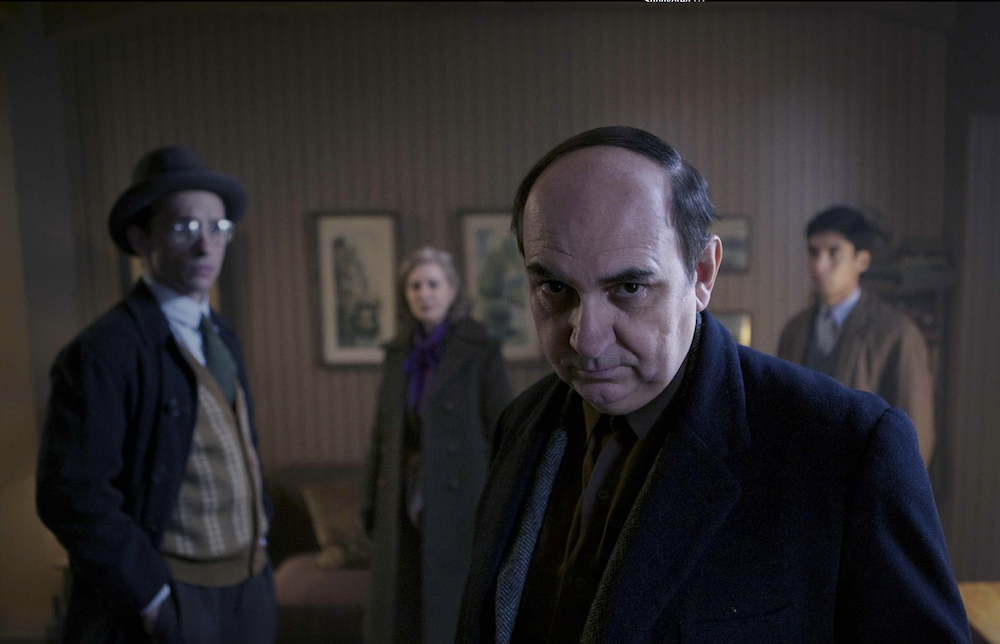Chilean poet Pablo Neruda received a Nobel prize for literature in 1974 and is considered by many to be one of the greatest who ever lived. More poem than biopic, Neruda is a creatively told imagining of one portion of his life. In 1948, the Chilean government outlawed the Communist Party (prodded by the US government) and Neruda (Luis Gnecco) suddenly went from esteemed Senator to revered fugitive with the doggedly determined police investigator Oscar Peluchonneau (Gael García Bernal) on his tail. It is through this chase that Neruda’s character and the wide influence of his work are revealed, and Peluchonneau is brought under Neruda’s spell. It is really quite wonderful!
Neruda and his third wife, artist Delia del Carril (Mercedes Morán), are sheltered by a series of Communist Party members. But he needs his adulation and frequently sneaks out, visiting brothels and walking the streets, daring the police to catch him.There is wonderful scene with a transvestite brothel singer where he recites one of his famous love poems to her, earning her undying devotion, which pays off later when she is taken in for questioning. And he is always just a step ahead of Peluchonneau, leaving him a trail of detective novels with notes inside that Peluchonneau reads trying to figure Neruda out. But try as he might to get out of the country, Neruda is turned away at the border, nearly caught at a port, and the seclusion from his fans and his politics is killing him. Finally, his comrades find a way for him to cross the snowy Andes and he escapes to Argentina.
But none of this is told straightforward. The film has two unreliable narrators. It opens with the voice of Peluchonneau. But soon it is switching back and forth between him and Neruda. One of the conceits of Neruda is that two viewers won’t see it the same way. Is Peluchonneau Neruda’s creation? Is this chase simply a story in his head? Is Neruda playing with him? And us? But there are just enough historic facts to ground it in reality. The anti-Communist putsch was real, as evidenced by a scene at Pisagua prison camp, which was run by a young lieutenant named Augusto Pinochet. And Neruda really did slog through snowy mountains to get to freedom, but the rest?
This is a great movie! It is lyrical and funny in its telling, with an undercurrent of the horror of what was happening politically in Chile. Gnecco and Garcia Bernal are pitch perfect in their antagonist roles. Director Pablo Larraín also directed the wonderful film No, which used many of the same cast including Gnecco and Garcia Bernal. I think they have a great future together. And the film is beautifully shot. I highly recommend Neruda to all film goers. Be prepared for a strange but satisfying experience.
Neruda was selected as the Chilean entry for the Best Foreign Language Film at the 89th Academy Awards.

